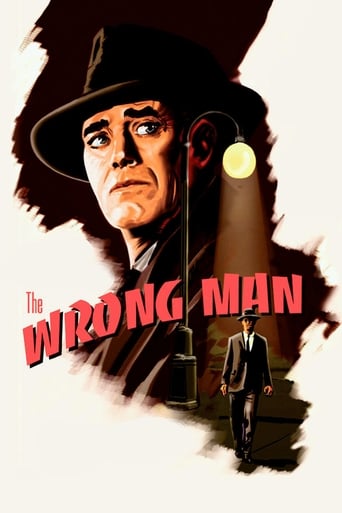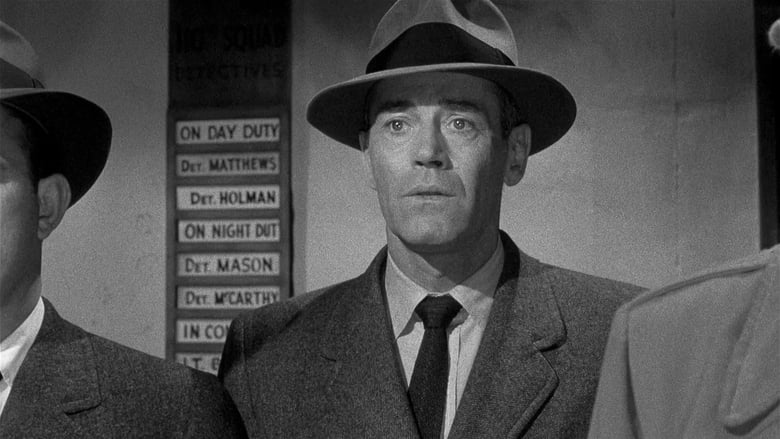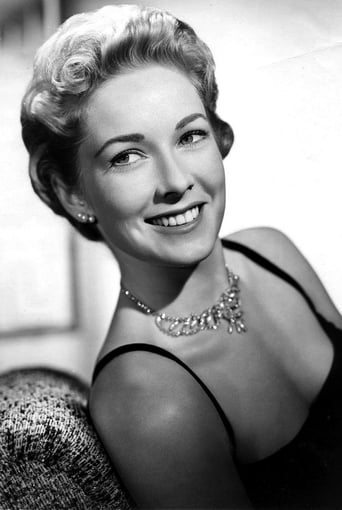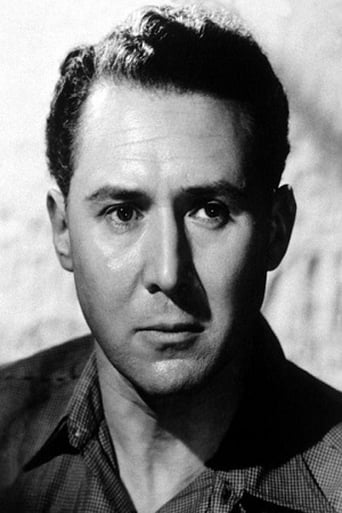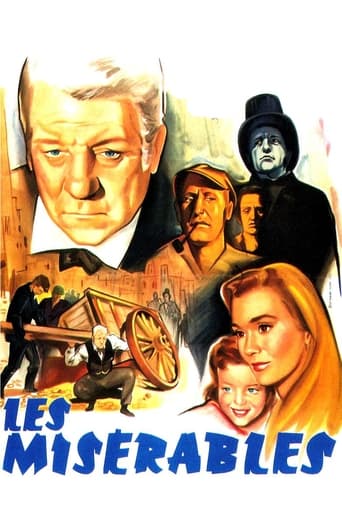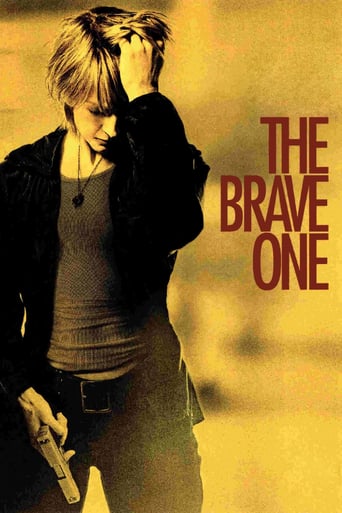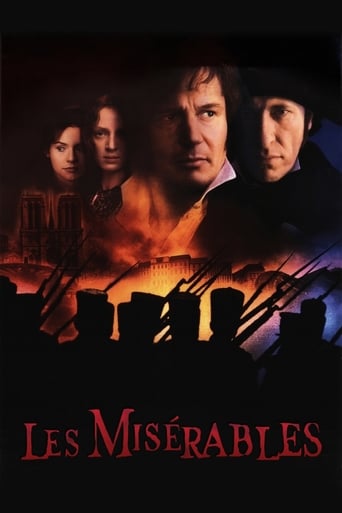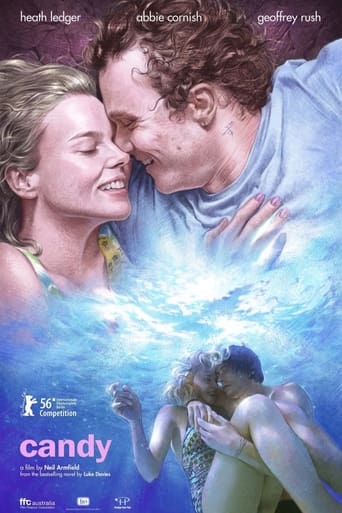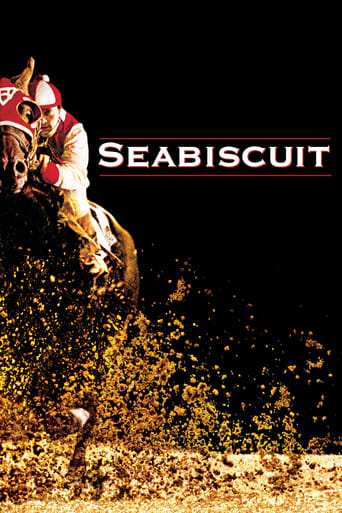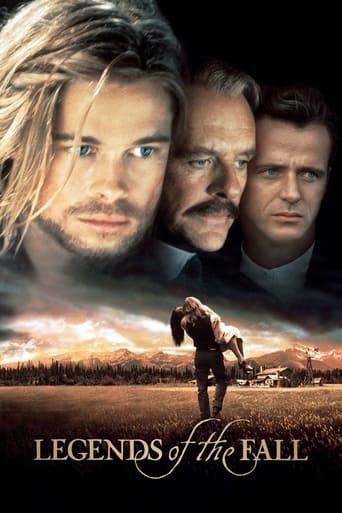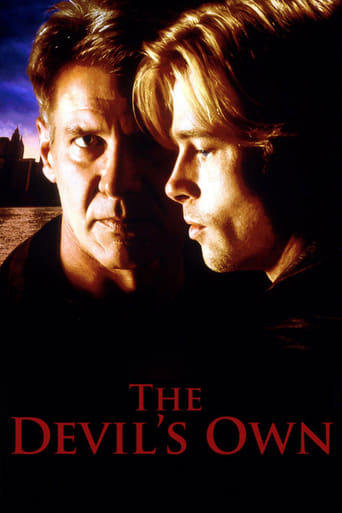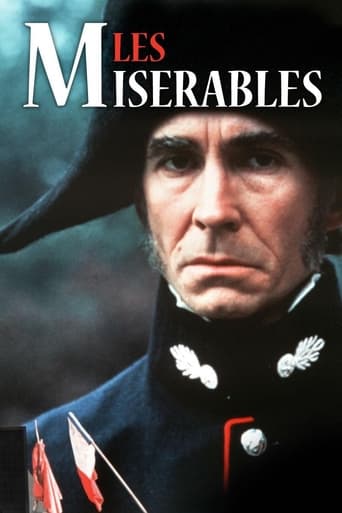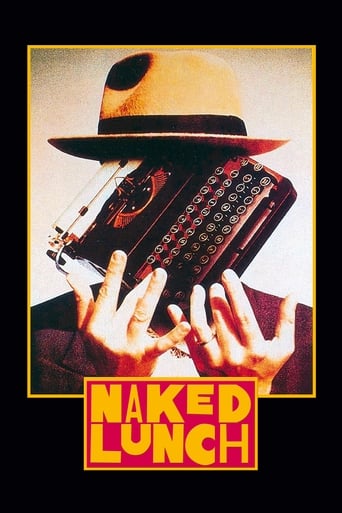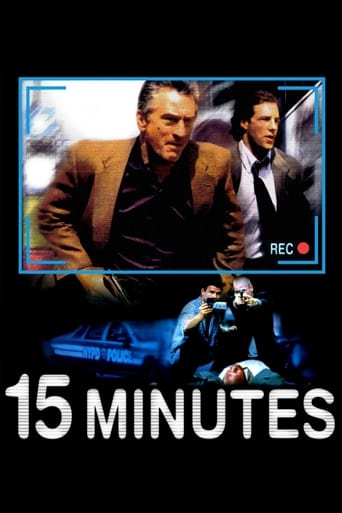The Wrong Man (1956)
In 1953, an innocent man named Christopher Emmanuel "Manny" Balestrero is arrested after being mistaken for an armed robber.
Watch Trailer
Cast


Similar titles
Reviews
Boring and predictable are two words that are never associated with Alfred Hitchcock, but "The Wrong Man" is both.The story never catches fire, the acting is flat and drones on and on. Once the crime is revealed, early on, you know exactly how the case will proceed and how it will be resolved.You keep waiting for a twist or a reaction from the lead character, but you get nothing but more bleh...Anything else by Hitchcock would be better...
If you look, the man in the liquor store is a look alike of the chief of detectives. he might be his brother and they may have used his testimony before to convict many perps. Another thing .... in all fairness police should not give witnesses prior views of potential perps. in the 2nd store the woman did not recognize Manny then she was told by the man he was sent by police. even then she hesitated. Police framed Manny by walking him thru stores and this gives witnesses a prior look at manny in a situation that makes him guilty. Then Harold j stone plays a trick on henry. he gets him to write two copies of the same note. then he can use them both as proof henry wrote his as exact replica to frame his guilt. that is why you need an attorney present during questioning. Stone played a shell game switching notes around. and if you notice Stone says DRAW. so actually henry wrote what he said! The lineup in the office involving two of the women from the life insurance company - was conducted unfairly. Henry was placed in such a way that he stood out and was more easily chosen. there was a space between 3 & 4 & henry was very obviously the center of attention. THEN the first woman said 4 while the second woman was there. they should have been done separately so the second woman would not know who the first woman chose. The whole police operation was entirely prejudicial against Manny. Police have done this so many times convicting innocent men that miranda had to be instated so an attorney could prevent these abuses.
Compared with Alfred Hitchcock's more well-known movies, THE WRONG MAN is comparatively low-key in tone, with few of the visual flourishes characteristic of his directorial style. The only really noteworthy moments are the prologue, where the director appears on a darkened and deserted sound stage, his shadow projecting eerily towards the camera as he introduces the action. Later on Hitchcock includes a memorable shot as the camera encircles Manny Balestrero (Henry Fonda) like a Ferris-wheel to suggest his confused state of mind; on another occasion the camera zooms into a letterbox-sized opening in the jail where Manny has been incarcerated and focuses on a close-up of his wild eyes looking left to right in desperation.THE WRONG MAN opts instead for a cinéma-vérité style of presentation more reminiscent of Elia Kazan than Hitchcock. Exterior locations of mid-Fifties New York play a major part in creating the film's atmosphere, from the bustling urban streets to the Brooklyn Bridge stretching far into the background as Manny and his wife Rose (Vera Miles) desperately search for witnesses to provide them with convincing alibis about Manny's whereabouts during the alleged robberies. Hitchcock was also fortunate in being given access to the famous Stork Club - which eventually closed in 1965 - whose bourgeois clientele and rarified atmosphere vividly contrasts with the mean streets outside. Manny spends his evenings as a bass-player in the club's band, inhabiting a goldfish-bowl like world that offers a refuge rather than an engagement with real life.Thematically speaking, THE WRONG MAN shows just how difficult it can be for humanity to control their lives. Manny lives a respectable life in Jackson Heights with his wife and two children, with nary a thing to bother him. Once he has been accused of the crime and thrown into jail, he has little or no means of redress, save for a sympathetic lawyer (Anthony Quayle) who agrees to defend him. Unable to endure the strain of living with guilt - whether true or false - Rose cracks up, and is forced to enter a sanatorium. Even though Manny is eventually cleared of all wrongdoing, Rose cannot be so easily cured; the sequence where she turns away from her husband despite his protestations of love is especially poignant. Maybe she actually still believes that he has committed a crime.The film ends with a written coda informing us that the Balestrero family eventually lived happily ever after in Florida. But this welcome news does not really alter our perception of the film. It is not really a mystery thriller or a film noir, but rather focuses on how ordinary people often cannot cope with extraordinary circumstances.
The Wrong Man lacks a lot of great aspects one would expect from a director as legendary as Hitchcock. The main problem is that the title of the film can easily be applied to other Hitchcock films. This movie takes a plot device Hitchcock recycled a few times in his career (the wrong man is accused of a crime) and sets it into a film which lacks the energy and suspense that Hitchcock is known for.In films like North by Northwest and Saboteur, Hitchcock takes this notion of the wrongfully accused man and puts him on a thrilling journey to find the people who had set him up and prove his innocence. In The Wrong Man, we have the innocent Henry Fonda - an actor so often playing the role of the good guy in cinema that it gets monotonous - fill the role of the wrongfully accused and he is put through the process of justice. He is questioned, arrested, bailed out, attends trial - you know, the opposite of what happens in North by Northwest and Saboteur. It proves to be a really boring story to watch as the protagonist is not fighting for his life, but rather simply denying the crimes he is accused of and hoping for the best.To be honest, Henry Fonda feels out of place in a Hitchcock film. He is more of a passive actor, more subtle than famous Hitchcock actors like Cary Grant and James Stewart. Those actors play their roles in Hitchcock films with true passion, clearly portraying fear and desperation. Fonda's performance in The Wrong Man lacks the passion we expect from a protagonist in a Hitchcock film.While Bernard Herrmann usually creates really interesting and powerful scores for films - especially for Hitchcock films like North by Northwest and Vertigo - here his music, like the film as a whole, lacks energy, and it specifically seems to repeat the same two-note theme over and over again. It fits the tone of the movie - this film is more of a drama than a typical Hitchcock thriller - but at the same time it is overly monotonous and hardly adds any feeling to The Wrong Man.Not a waste of time to watch, but The Wrong Man is simply disappointing compared to the rest of Hitchcock's canon, which is filled with masterpiece thrillers that will continue to be discussed for decades to come.2.5/4.0

